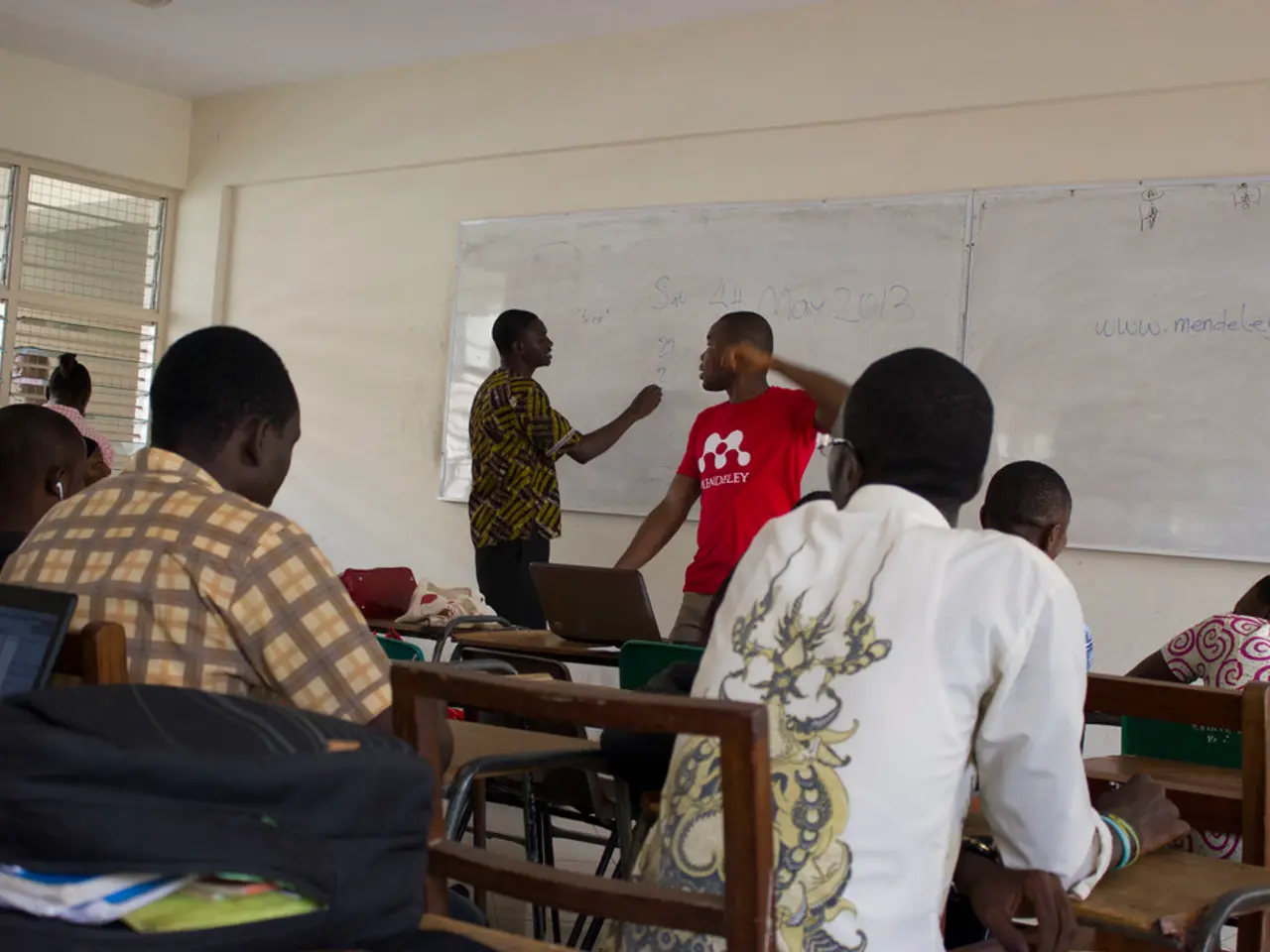Artificial Intelligence in Education: Challenging the Belief that AI Encourages Lethargy and Restricts Creative Problem-Solving in Pupils
In the ever-evolving world of education, the integration of Artificial Intelligence (AI) is becoming increasingly prevalent. Dr. Amina Yonis, an online content creator and founder of The Page Doctor, explores the ethical considerations and benefits of using AI tools in academic writing and education.
### Ethical Considerations
The ethical use of AI in academia is multifaceted, encompassing data privacy, algorithmic bias, transparency, academic integrity, and cognitive autonomy. Protecting student data from misuse, ensuring fair treatment for all students, and maintaining transparency about AI functions are crucial. Policies must be in place to prevent plagiarism and uphold academic honesty, and cognitive growth should be safeguarded by balancing AI use with traditional learning methods. Informed consent and stakeholder engagement are also essential for responsible AI adoption.
### Potential Benefits
AI offers significant potential benefits, including personalized learning, increased efficiency, and support for educators. AI can tailor educational content to individual needs, automate administrative tasks, and provide additional learning support. It can also act as an assistant for educators, helping to develop course materials and identify student learning gaps.
### A Comprehensive AI Writing Toolkit
The platform, a prime example of ethical AI use in academia, offers a wide range of features. It includes the 'Trim' feature, which supports students with tight word count requirements, the 'Paraphrase' feature, which broadens academic vocabulary, and the 'Templates' feature, a reliable writing assistant that can generate outlines, summaries, and keywords. The 'Make Academic' feature enhances written text subtly, improving cohesion and clarity, while the 'Make Smarter' feature offers suggestions for vocabulary and grammar.
### Balancing AI and Traditional Learning
Dr. Yonis, an advocate for the responsible and ethical integration of AI in education, emphasizes the importance of balancing AI assistance with traditional learning methods. She notes that AI tools like ChatGPT, Bard, and Bing offer more elementary use cases, but are still effective and ethical when it comes to generating outlines or enhancing introductory sentences.
The initial reaction within the educational space towards AI was mixed, with some embracing its potential and others expressing concerns. However, with responsible and ethical practices, AI tools can enhance productivity, foster critical thinking, and facilitate intellectual growth among students.
The platform, a comprehensive academic writing toolkit, leverages 21+ years of STM experience and insights from millions of research articles. It is accessible for free, with upgrading to Prime starting at US$19 a month. With a following of over 280,000 subscribers and content that has been viewed over 11 million times, Dr. Yonis's advocacy for responsible AI use in education resonates with a wide audience.
[1] European Commission. (2019). Ethics Guidelines for Trustworthy AI. [2] OECD. (2019). Artificial Intelligence: The Ethics of Automation. [3] National Academies of Sciences, Engineering, and Medicine. (2019). Preparing for the Future of Artificial Intelligence. [4] Partnership on AI. (2019). Ethics and Trust in Artificial Intelligence.
- Dr. Amina Yonis, through her platform The Page Doctor, offers writing support for academic writing, including technology-based features like language editing, paraphrasing, and template generation, aiming to help students achieve submission readiness.
- The ethical use of AI in academic writing and education extends to academic integrity, ensuring that AI-assisted work does not encourage plagiarism or undermine the authenticity of academic research and writing.
- In the quest for education-and-self-development,AI tools can provide language editing, paraphrasing, and writing assistance, contributing to more efficient academic translation and academic writing processes.
- To maximize benefits while minimizing risks, it's crucial to balance AI assistance with traditional learning methods, ensuring that technology remains a tool for intellectual growth rather than a replacement for human teaching and critical thinking.




